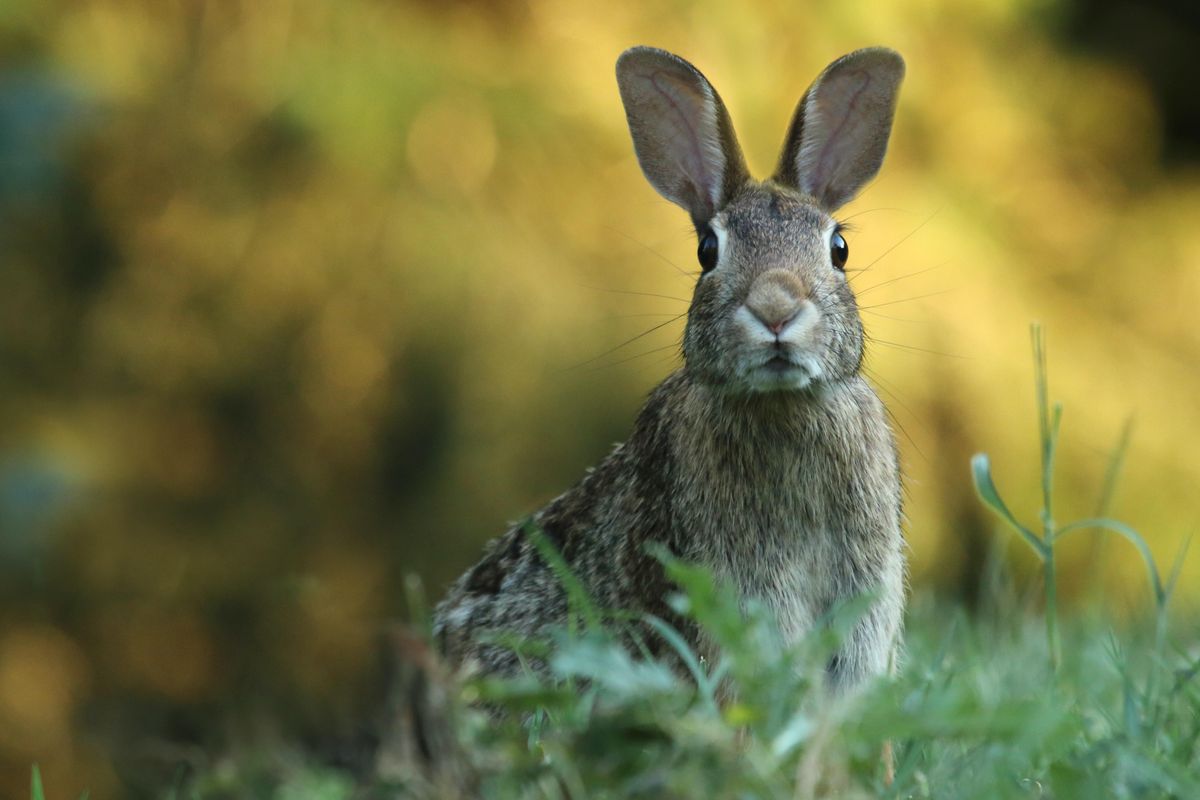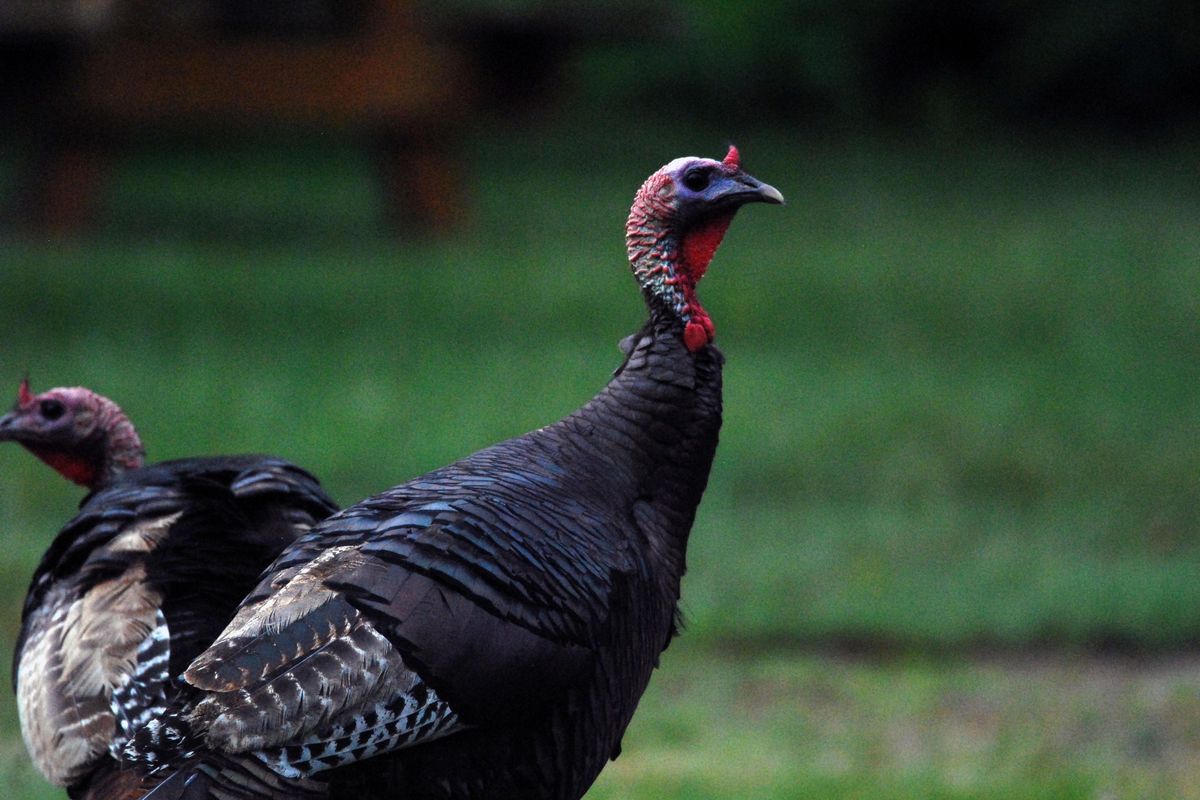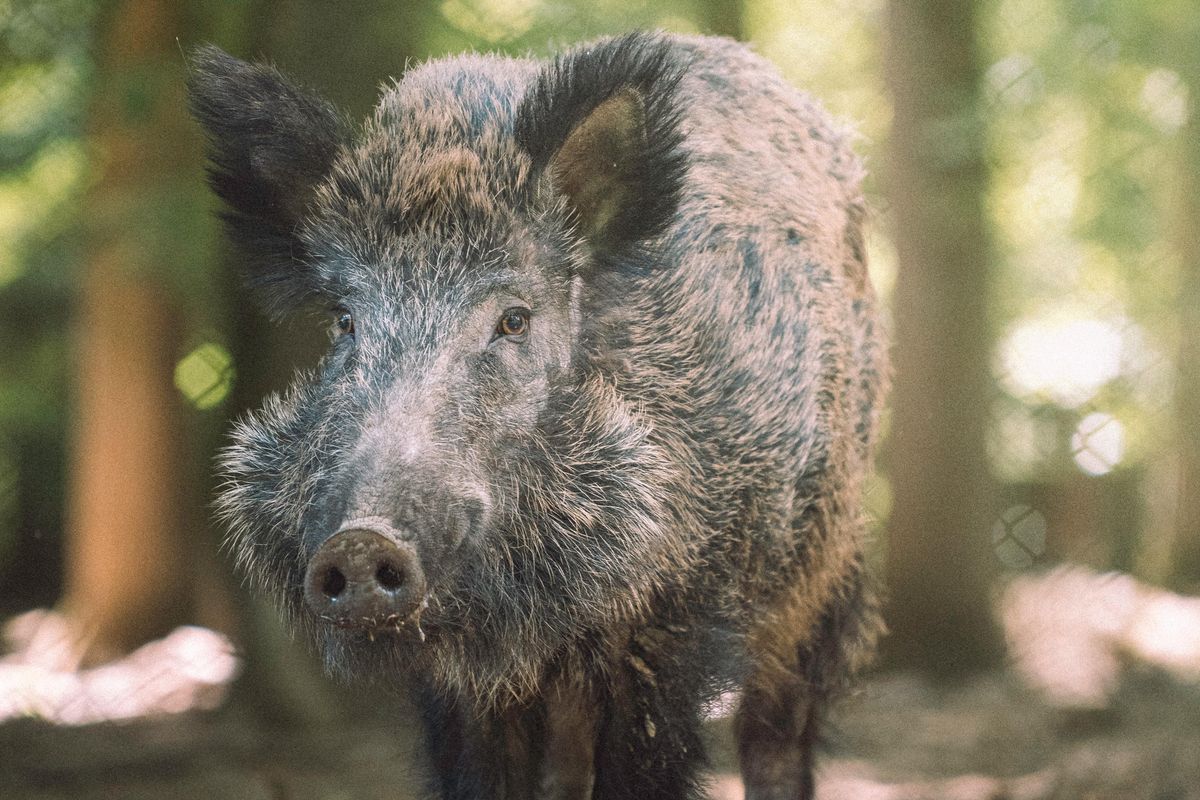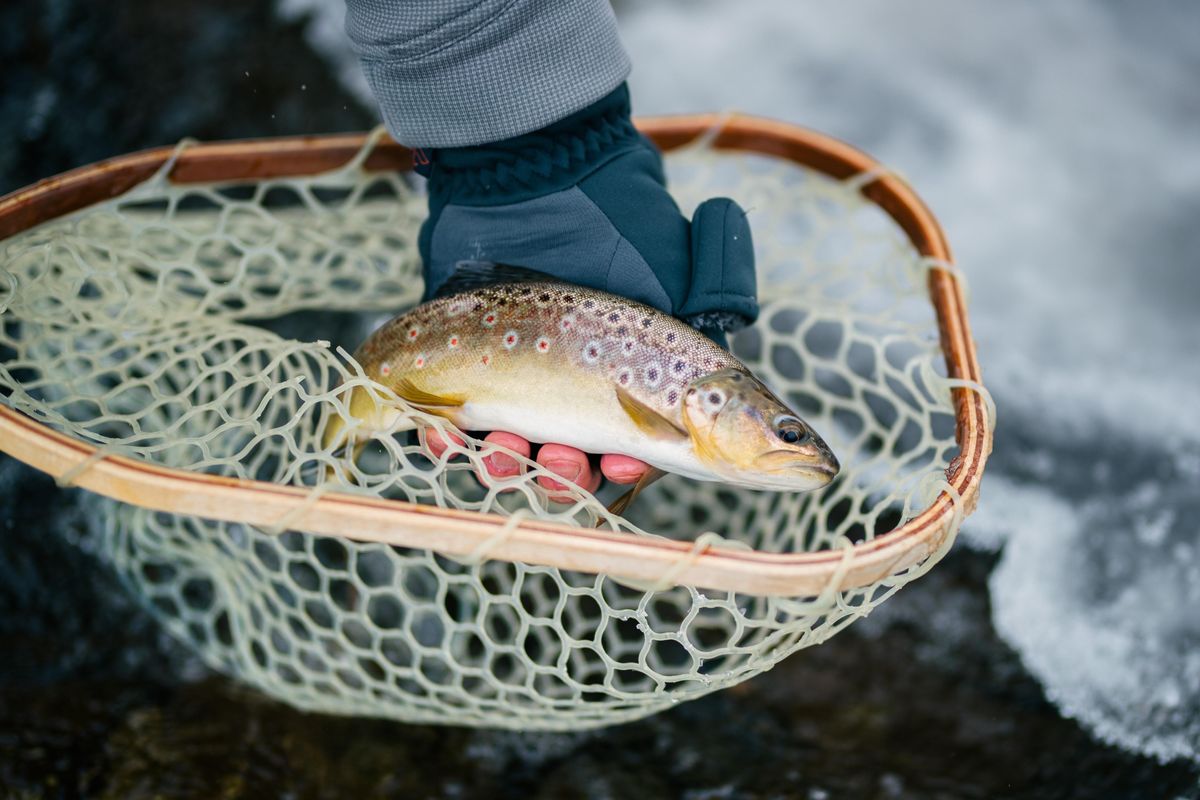
Cattle tagged on a factory farm.
So you want to eat meat, eh? There's a dilemma.
Ever since the release of Michael Pollan's seminal book, "The Omnivore's Dilemma," more people all over the world have been trying to decide if their lives could use more locally harvested food — including meat.
The existing meat production pipeline is flawed. Pollan and many others — like Eric Schlosser (of "Fast Food Nation" fame) and the documentary "Samsara" — have showed us just how bad it really is. Some folks go vegan or vegetarian, but others have tried to figure out ways to get locally raised animals.
“Were the walls of our meat industry to become transparent, literally or even figuratively, we would not long continue to raise, kill, and eat animals the way we do."
— Michael Pollan, "The Omnivore's Dilemma"
Can you eat meat ethically?
What is there to do if you would prefer meat to be a source of protein in your diet but want to have it in an ethical and eco-friendly way?
The answer might be in your backyard. Literally.
If you live in an area that has access to wild game, you may want to consider hunting. Seriously! Many people have turned to personally hunting their meat, and the vast majority of those who are passionate about it harvest game in ways that are safe, clean, and quick.
Ask yourself: Is that more or less ethical than, for example, a cow grown while standing on piles of manure, force-fed antibiotics, and unable to turn around or even move? Or a chicken with its beak cut off, unable to move in its cage or do anything except eat and … well, you know. How about what happens when animals reach the "killing floor" where they're executed en masse and "disassembled" before they make it to the local "Mall*Wart" in your city?
If you do it yourself, it can get you closer to your food supply and in touch with its life cycle.
Even though I've hunted since I was a kid, "Omnivore's Dilemma" got me even more interested in putting wild game into my freezer and onto our table. Knowing a lot more about your food sources is key to understanding why it matters so much to your health and happiness. And, prepared right, wild game is absolutely delicious.
Also, I still thank every animal I take for giving food and sustenance to my family.
Replacing things like factory-farmed cows and chickens with wild game is possible.
You can also look into organic/grass-fed animals on local farms, but that can get pricey. We've done it to the tune of $900 for a half cow, and you must have a deep freeze on hand to store it.
But small-game hunting can be cost-effective and good exercise, and it's not a big lift when it comes to cleaning and cooking.
Some people use a bow and arrow, a small-caliber rifle like a .22, or even a simple single-shot shotgun available for $100. For that matter, there are many people who like to hunt with birds of prey — trained falcons, hawks, and more.
Whatever method you use, once you've got your license, it's time to get out there!
What are some good options to hunt?
Let's go through some varieties of game that can usually be found in open areas around the United States.
1. Rabbits

Thumper ... I mean, the cottontail rabbit.
Photo by Gary Bendig on UnsplashCottontails, hares, and jackrabbits all provide a great meal when you harvest them humanely and ethically. Rabbit season starts in September or October in most parts of the country. The taste? A lot like chicken, but a little stronger flavor. You can really make it tasty with a good ol' hasenpfeffer recipe (or as Bugs Bunny would call it ... rabbit stew).
2. Squirrels

The common fox squirrel stands up on its hind legs.
Photo by Patti Black on UnsplashBushy tail (fox) squirrels, chipmunks, woodchucks, and prairie dogs are all in the same scientific family. As opposed to hoofing it through the woods and grasslands for rabbits, squirrel hunting is more for people who like to sit for a while. The taste is also kinda like chicken, but a lot greasier. Think dark meat.
3. Upland birds

A pheasant struts through brown grass.
Photo by Jack Seeds on UnsplashPheasant, quail, grouse, Hungarian partridge, and other species are actively eating and preparing for the winter months late in the year, starting around September. Definitely a way to burn some calories because hunting them requires hikes through woods, grasslands, and farm fields, where you can see them flush, often with a great flourish of color.
As you might have guessed, the taste is very much like chicken!
4. Waterfowl

"Honkers," as they're sometimes called. If you've ever been close to a flock, you know why.
Image taken by Alan D. Wilson (modified), Wikimedia Commons.
Waterfowl include geese, ducks, and other birds that stay close to water. At 12 to 15 pounds per bird for an adult goose, they can easily feed a family. It's very much a dark meat; in fact, goose breasts look as dark as steaks before and after you cook them. The taste is very much like duck, rather than turkey. All are fabulous, on the grill or slow-cooked in the oven or pressure cooker.
5. Deer, elk, and other cervids

A young-bull-elk stands on the mountain side.
Image via Pixabay.
This is definitely deep-end-of-the-pool hunting — not small game. And it takes a deeper relationship with the local population to really make it ethical.
A word on "trophy" animals (i.e., those with a lot of antlers) versus those intended for food and culinary delights: Though the picture I took here is of bucks, I take the female variety ("does") too. There's a reason why.
If the herd gets out of balance from too many does, then bucks can die from food scarcity in the winter months. Read: They starve.
I've been regaled with many a tale of winters being so harsh in parts of the country that deer eat tree bark and pine needles to survive. That's not good, and they suffer, so it's far better to harvest enough of them each year so that the herd is strong.
"Hiya, human!" Photo of bull elk in Rocky Mountain National Park by Brandon Weber/Upworthy.
In the mountain states, elk and other cervids (ruminant mammals that are members of the Cervidae family) are also frequently harvested. These will supply hundreds of pounds of venison at a time.
I'm a bow hunter myself, and it takes tons of patience, practice, skill, and the ability to sit quietly for hours on end. My 7-year-old wants to go deer hunting in a few years, but I've already warned him that he cannot talk for hours at a time — a feat I do not think it's humanly possible for him to accomplish.
The taste is like beef, with much less fat. Cooking venison is a skill unto itself, and you frequently will have to cut the cooking time in half versus beef, or it will be very dry. They're much like grass-fed beef in that regard. The varying types of cervids produce subtle taste differences. I am fond of whitetail deer and elk, but some folks love caribou and antelope, too.
Bonus: If you want to go full-on mountain person, you can learn how to make a coat or blanket from the hides, as well as other fancy things from other parts. Double bonus: If you have dogs, venison bones are great for them to chew on. (Just be sure to do it safely!)
6. Wild turkey

Wild Turkeys walking around a green field.
Photo by Tyler Moulton on UnsplashNo, not THAT Wild Turkey...
This is another "sit and wait" creature to hunt, and they have extremely acute eyesight and hearing, so they're not easy. But taste one — even if you've had "free-range" turkey before — and you might just be hooked.
7. Wild boar/pig

A black wild boar walking around.
Photo by Max Saeling on UnsplashI've not yet had the experience of hunting these, but (SPOILER ALERT!) it is the critter that Pollan ends up harvesting at the end of "The Omnivore's Dilemma," along with local mushrooms and vegetables. In some parts of the country — especially the South — they are frequently harvested year-round. The taste is definitely pork, with older animals having a "musky" flavor.
"Oink? Not quite, Bub."Bonus!
For the pescatarians out there, catching and cooking your own fish can be magical. You only need access to waterways, ponds, or lakes, and a simple cane pole with a hook and night crawler will do. The kids will love it, and cooking fresh catfish or trout over a campfire is a great experience.

Pulling a fish out of a net basket.
Photo by jack murrey on UnsplashThere are, of course, tons of other critters in pockets of the country that can also be harvested as well, like alligators, goats, crabs, lobsters, bears, and more.
Hey, it beats store-bought, right? Check with local ethical hunters to see what might be available to you!
What if the whole idea of hunting game yourself is still not for you? That's fair.
Here's an idea: Why not trade with someone for locally sourced meat?
If you don't want to go through with hunting and taking your own animals, you could arrange a trade with someone you know. "Hey, Jane, I'll prepare the bread from locally raised grain and roast some locally-grown vegetables if you can harvest the venison steaks. Deal?"
Or even get together with friends and family who hunt and make it a feast!
Bon appétit!
Also, for a little taste of what "The Omnivore's Dilemma" is all about, check this video out:






 A woman is getting angry at her coworker.via
A woman is getting angry at her coworker.via  A man with tape over his mouth.via
A man with tape over his mouth.via  A husband is angry with his wife. via
A husband is angry with his wife. via 
 Curling requires more athleticism than it first appears.
Curling requires more athleticism than it first appears.
 Angelo and Jennifer were a happy couple.
Angelo and Jennifer were a happy couple. Angelo and Jennifer
Angelo and Jennifer  Jennifer was diagnosed with cancer in 2008.
Jennifer was diagnosed with cancer in 2008. Her diagnosis came only five months after they were married.
Her diagnosis came only five months after they were married. Losing hair is a common side effect of cancer treatment.
Losing hair is a common side effect of cancer treatment. Angelo and Jennifer decided to document her cancer journey.
Angelo and Jennifer decided to document her cancer journey. Cancer can be lonely sometimes.
Cancer can be lonely sometimes.  Not everyone understands the journey.
Not everyone understands the journey. They captured the ups and the downs.
They captured the ups and the downs.  They also captured the love and heartbreak.
They also captured the love and heartbreak. Small joys are part of the journey.
Small joys are part of the journey. Celebrating Jennifer's 40th birthday
Celebrating Jennifer's 40th birthday Having a support system makes a big difference.
Having a support system makes a big difference.  Every photo tells a story.
Every photo tells a story. There is love in every image.
There is love in every image. And then the after began.
And then the after began. Jennifer's tombstone reads "I loved it all."
Jennifer's tombstone reads "I loved it all." 

 Comfort in a hug: a shared moment of empathy and support.
Comfort in a hug: a shared moment of empathy and support. A comforting hug during an emotional moment.
A comforting hug during an emotional moment. Woman seated against brick wall, covering ears with hands.
Woman seated against brick wall, covering ears with hands.